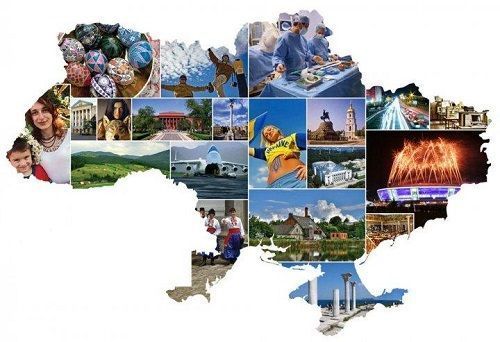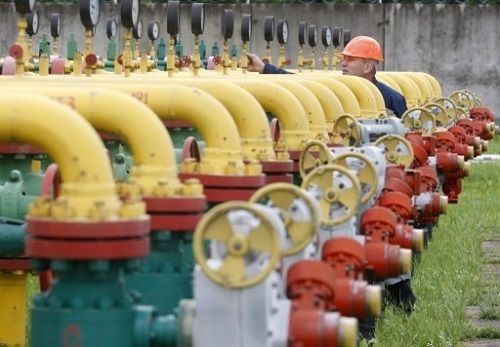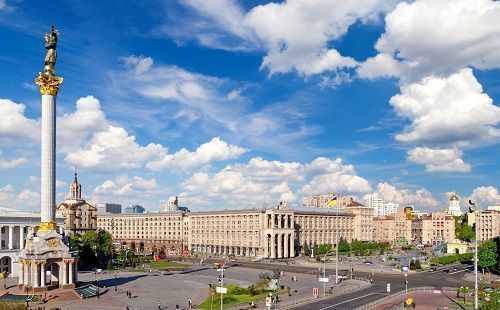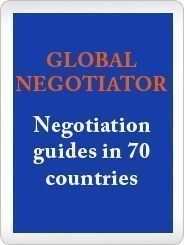The current political situation has created new opportunities for doing business in Ukraine because of its progressive approach to Europe and the implementation of important reforms aimed at turning the country into a free economy, washing away, at least, a part of the burden of corruption and oligarchy.
Ukraine, a relatively unknown country for many until not long ago, has already been in the eye of the storm for more than two years, since the instability that overthrew its former President Viktor Yanukovich in February 2014 and the annexation of the Republic of Crimea by the Russian Federation at the end of March of the same year.
Placed between two big economic blocs, the European Union and the Eurasian Economic Union, Ukraine is the second biggest country in Europe after Russia.
With a GDP of €160 billion, its economy has been hampered on two very salient occasions during the last 25 years, due to phenomena partly linked to its ex-soviet neighbor: between 1990 and 2000 because of its independence from the USSR (that damaged its industrial production index and its price stability) and since 2014, as a consequence of its current conflict with Russia, which remains by far its largest trading partner to this day.
Nevertheless, Ukraine has decisively changed its orientation towards the West, which opens new perspectives that lead us to conclude that its current unstable situation may be just a mere holdup before a medium term integration into a superior frame of European legal certainty. Its particularities and advantages have made this Eastern European country a very underrated asset, in which it will be extraordinarily profitable to invest taking advantage of the low stage of its economic cycle.

From the business side, many European exporters have chosen to delete Ukraine from their world map until the clarification of its political situation, in which probably is a wrong strategy. Ukraine is today the perfect example of how mainstream perceptions can be exaggerated. As a result of this, the competition has withdrawn more than proportionally in many sectors of the Ukrainian trade and has opened so many paths to new players.
Those who doubt about the immediate future of this market of over 45 million consumers would do well to consider the following factors:
- Ukraine holds the third largest reserves of non-conventional hydrocarbons (extractable by fracking) in all Europe.
- Its fertile surface equals to a third of the total productive soil of the European Union. Ukraine is already the third world exporter of corn and the fifth of wheat, with a considerable growth potential.
- Since January 1 2016, Ukraine is part of the European Union’s free trade zone, which in practice obligates Europe to provide it with a higher level of economic assistance. It also means a clear opportunity to the European exporter to embark on board a yet untapped market, before it gets full of competitors, which will very likely happen in no more than 5 years after its formal integration in the union.

- In the last 20 years the World Bank Group has supported the Ukrainian budget with more than 4 billion dollars of programmatic loans that force the country to implement several reforms aimed at prosecuting corruption and improving the productivity of the country.
- The recession forecasts for Ukraine in 2016 have recently been replaced by a gradual growth forecast because of the good pace at implementing the necessary reforms (especially the fiscal consolidation), the activation of the customs agreement with the European Union and the low prices of fuel.
- The Ukrainian financial sector is currently undergoing a process of recapitalization and restructuration in order to ensure its efficiency at performing its tasks and its capacity to cover the deposits in case of bank defaults. In addition to that, the international reserves of the Ukrainian National Bank have grown by 260% to reach 13 billion dollars, which should be more than enough to maintain a stable exchange rate. In 2016 a drop in interest rates is expected, which will improve financing conditions in the country and may be the start of a credit expansion period.
- The strong devaluation of its currency, the grivna, generates very interesting investment opportunities, which have been reinforced by the good growth prospects in the long term. Moreover, after a fall in industrial production in 2014 and 2015 there are abundant untapped resources, at a reduced price, which together with the devaluation, allows the western companies to make very competitive acquisitions.
- Its energy reform will unify the energy prices in April of this year, in order to avoid the privileged arbitrage in favor of certain companies, directed by the oligarchy. This will grant access to western companies whose skills are known internationally and together with them to many SMEs that accompany them as suppliers in multiple projects.
- 2016 will mark the beginning of a long list of privatizations, which will allow the access of international stakeholders with more experience and higher standards concerning the operative results of their participated enterprises.

- The still relatively competitors-free markets, the future works of reconstruction in the eastern part of the country and the fear (mostly inconsistent) of many companies at betting for Ukraine today probably make this country the area with the best development opportunities and return on investment of the whole European continent.
For all that, Ukraine is still not an easy market. That is why it is essential to enter it counting on realistic advisement, which would also allow taking advantage of the current situation in the sectors that have become more attractive.
By José María Rodríguez Clemente, Managing Director and co-founder of Rusbaltika, a consultancy firm specialized in advice, representation and investments in Russia, Belarus, the Baltic countries and Ukraine.
 To get complete information about doing business in 70 countries click on: Business Culture and Etiquette in 70 countries
To get complete information about doing business in 70 countries click on: Business Culture and Etiquette in 70 countries




